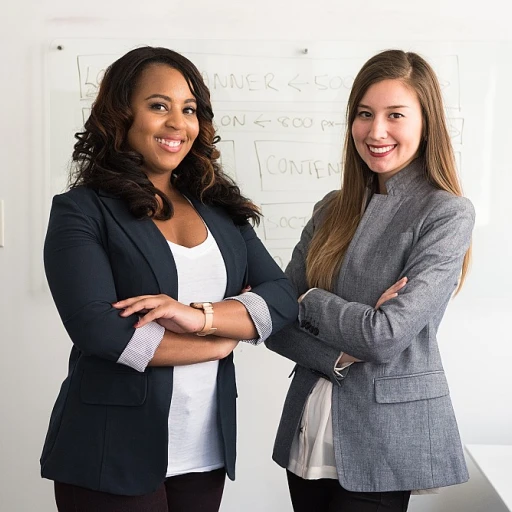
Understanding the SLP Summit
Unveiling the Impact: An Introduction to the SLP Summit
The SLP Summit stands as a beacon for professional development in the field of speech-language pathology, offering a unique platform for both seasoned professionals and students to enhance their practice through continuing education. At its core, the summit serves as a confluence for speech-language pathologists to gather insights, strategies, and evidence-based practices critical for career advancement. Whether you're focused on school-based interventions or exploring augmentative and alternative communication (AAC), the SLP Summit provides valuable resources tailored to meet diverse needs.
With its emphasis on speech therapy and AAC, the summit is designed to foster the professional growth of SLPs by providing access to free courses and sessions that cover a wide range of topics, from speech sound disorders to apraxia speech interventions. This initiative is not just limited to knowledge sharing; it's a celebration of the support that empowers SLPs to excel in various settings, be it schools or clinics.
Moreover, the SLP Summit is crucial in bridging the gap between theoretical knowledge and practical application, offering participants free CEUs that are essential for maintaining certification and staying abreast of the latest advancements in speech-language pathology. The ability to earn these CEUs by attending the summit makes it an indispensable resource for SLPs seeking to expand their expertise.
To learn more about the transformative potential of professional mentoring and its impact on careers, consider exploring how robust mentoring frameworks can augment such initiatives. The power of business coaching and mentoring provides invaluable insights into unlocking professional potential.
The Role of Mentoring in Career Advancement
Mentoring as a Catalyst for Career Growth
The significance of professional mentoring in career advancement cannot be overstated, especially in fields like speech-language pathology (SLP). For speech language pathologists, engaging with mentors provides invaluable support and guidance, helping them navigate complex areas such as speech therapy, articulation, and augmentative alternative communication (AAC).
Mentoring offers free insights into effective interventions and therapies, often grounded in evidence-based practices, which can include dealing with speech sound disorders and apraxia speech. Such guidance is crucial for both seasoned professionals and students looking to refine their skills and knowledge.
Many mentors in the SLP summit focus not only on technical prowess but also on soft skills like communication and leadership. These attributes are essential for school-based practitioners who work closely with students, teachers, and parents during interventions. The American Speech-Language-Hearing Association (ASHA) highlights the importance of such professional development, offering ASHA CEUs and free CEUs tailored to the needs of pathologists SLPS.
Furthermore, professional mentoring serves as a platform for SLPS to explore alternative career paths, ensuring their personal and professional growth. By leveraging the myriad advantages of mentoring, SLPS can look forward to a thriving career enriched by continuous learning and development.
Building Effective Mentor-Mentee Relationships
Establishing a Productive Connection
Developing a strong mentor-mentee relationship is crucial for both personal growth and professional advancement. The SLP Summit environment is designed to foster these relationships by encouraging participants to engage in meaningful dialogue around shared interests and professional development goals. One essential component is establishing clear expectations from the outset. Mentors and mentees should discuss their objectives, preferred communication methods, and any specific areas they wish to focus on, such as speech therapy intervention strategies or exploring alternative communication approaches like augmentative alternative communication (AAC). This structured foundation ensures both parties are aligned and working toward common goals. Trust and respect are fundamental to any successful mentoring relationship. Open communication and active listening are key; mentors should offer guidance based on their professional experiences, evidence-based practices, and training insights. For instance, when discussing intervention for speech sound disorders or apraxia speech, mentors can help mentees apply theoretical knowledge to practical scenarios. Moreover, offering continuous support is vital. Mentor involvement doesn't stop at theoretical discussions or course advice—it's about providing practical guidance in navigating challenges in real-world settings. This could involve helping mentees understand different professional development pathways, such as school-based therapy approaches or leveraging ASHA CEUs for continuous learning. For more on fostering resilient relationships within a mentoring setting, you can explore effective strategies that guide both interns and seasoned professionals alike.Challenges in Professional Mentoring
Overcoming Hurdles in Professional Mentoring
Professional mentoring, especially in specialized fields like speech-language pathology (SLP), presents unique challenges. These challenges can impact both mentors and mentees, potentially hindering the growth and development that mentoring aims to foster. Understanding these obstacles is crucial for creating effective mentoring relationships and maximizing the benefits of programs like the SLP Summit.
1. Time Constraints
One of the most significant challenges in professional mentoring is finding the time. Both mentors and mentees often juggle busy schedules filled with responsibilities such as speech therapy sessions, school-based interventions, and continuing education units (CEUs). This can make it difficult to schedule regular meetings, which are essential for building a strong mentor-mentee relationship.
2. Matching Mentor and Mentee
Another challenge is ensuring a good match between mentor and mentee. In the field of speech-language pathology, where professionals may specialize in areas like augmentative and alternative communication (AAC) or speech sound disorders, finding a mentor with the right expertise can be difficult. A mismatch can lead to frustration and a lack of progress.
3. Communication Barriers
Effective communication is the cornerstone of any mentoring relationship. However, differences in communication styles or expectations can create barriers. For instance, a mentor might prefer evidence-based strategies, while a mentee might be more interested in practical, school-based applications. Bridging these gaps requires patience and a willingness to adapt.
4. Maintaining Engagement
Keeping both parties engaged over time can be challenging. Initial enthusiasm can wane, especially if the mentoring relationship lacks clear goals or if progress seems slow. Regular check-ins and setting achievable milestones can help maintain momentum and ensure that both mentor and mentee feel supported.
Addressing these challenges requires a proactive approach. By acknowledging and planning for these potential hurdles, participants in the SLP Summit can enhance their professional development and make the most of the opportunities that mentoring provides.
Success Stories from the SLP Summit
Encounters of Success at the Summit
The SLP Summit has become a cornerstone event, showcasing the transformative potential of professional mentoring in the field of speech-language pathology. Through compelling narratives, past participants have shared how their involvement in the summit has cultivated opportunities for growth and development. One shining example comes from a school-based speech-language pathologist who leveraged the summit's resources to pivot her career path. By engaging in sessions focusing on intervention strategies and augmentative alternative communication (AAC), she enriched her approach to therapy, providing evidence-based solutions for her students with speech sound disorders. Inspiringly, this allowed her to earn ASHA CEUs and significantly bolstered her confidence as a speech therapy practitioner. Another participant, a budding student fresh out of their CCC-SLP certification, found the summit to be instrumental in bridging the gap between academic learning and practical application. Free CEUs offered during the course of the summit enabled her to gain insights into apraxia speech treatment and support school-based language pathologists effectively. Her story is a testament to how the summit can be pivotal in early professional development. Moreover, the summit provides a unique platform for seasoned pathologists to share their expertise. These mentors actively contribute to a culture of learning, where collaboration and continuous education are celebrated, ensuring that both mentors and mentees benefit. The free speech resources and insightful discussions during the summit fuel a community driven by shared professional aspirations and the collective pursuit of excellence in speech-language pathology. The testimonials are numerous, each adding to the view that the SLP Summit is not just an event but a community-driven ecosystem designed to nurture and celebrate the collective achievements of SLPS. As the summit progresses, these success stories continue to fortify the essential role of mentoring in this specialized field, resonating with those who aspire to elevate their practice and broaden their horizons.How to Get Involved in the SLP Summit
Getting Started with the SLP Summit
Getting involved in the SLP Summit can be a rewarding step in advancing your professional journey in speech-language pathology. This event offers free access to a wide range of resources, including courses eligible for ASHA CEUs, and an unparalleled opportunity to connect with experts and peers.- Registration: The first step in participating in the SLP Summit is to register for the event. This annual summit is designed to cater to both seasoned speech language pathologists and students in the field, offering comprehensive sessions on a range of topics such as therapy strategies for apraxia of speech and augmentative alternative communication (AAC).
- Choose Your Sessions: Given the diverse range of sessions, it's essential to carefully review the agenda. You’ll find school-based interventions, evidence-based practices, and discussions on emerging trends like support for speech sound disorders. These sessions are perfect for CCC SLPs looking to fulfill their continuing education requirements.
- Explore Mentoring Opportunities: As discussed in previous sections, effective mentor-mentee relationships are central to career advancement. At the SLP Summit, you’ll find ample opportunities to connect with potential mentors or even become a mentor yourself, depending on your career stage.
- Stay Engaged: During the summit, staying engaged with live Q&A sessions and interactive workshops can enhance your learning experience. This interaction not only broadens your perspective but may also lead to fruitful collaborations.
- Continue Beyond the Summit: Professional development doesn't stop at the end of the event. Implementing the strategies and insights gained from the SLP Summit into your daily practice will provide long-term benefits. Furthermore, maintaining connections formed during the summit can lead to enduring professional growth.













